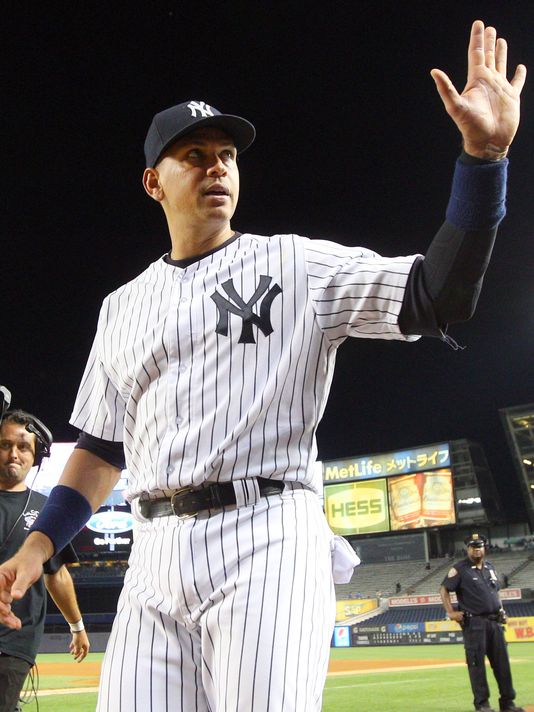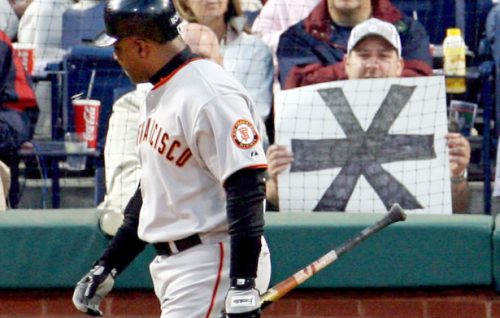
Normally, a great athlete announcing his/her retirement provides an opportunity to reflect on a legacy. Image-management, tweaking of narratives and ad nauseam SportsCenter coverage often ensue. For professional athletes, therefore, this can be viewed as a strategic opportunity to forge a lasting impact, like a President in the final year of his second term. Different players choose to handle the retirement issue in different ways. Michael Jordan retired three times, Brett Favre stumbled over it so much we were eventually begging him to leave and Peyton Manning stepped into his next job as Papa Johns and Budweiser PR-man on the field at the Super Bowl. This year, Kobe Bryant dragged his last place team painfully through the fanfare of his final season. Yet, the consummate showman, Kobe made it all worth it with his spellbinding performance in the final game of his twenty-year career, scoring 60 points in a come-from-behind victory. The Lakers put together an awesome tribute vid for him that night:
Not all players are blessed with Kobe’s flair for the theatrical, and not all sports allow for the creativity and flourish of basketball. In baseball, a game built around tradition and unwritten codes of conduct, final seasons have also served to spawn great moments and help cement legacies, but the celebrations are more reserved. Lou Gehrig’s famous “luckiest man” speech and Cal Ripken’s 3001st game as an Oriole come to mind. Mariano Rivera and Derek Jeter enjoyed memorable farewell tours in recent seasons, and David Ortiz has been putting up big numbers in his final year. But what about the guys who don’t go out on top? It’s easy to memorialize a fantastic player whose bright spots outshine his darker moments, but what about the guys who go out as losers, whose notable careers are overshadowed by scandal and leave the game with an overwhelmingly negative public image? Major League Baseball has been forcing fans to ask this question repeatedly during the Steroid Era. It’s no surprise then that when Alex Rodriguez declared unexpectedly that he will finish his playing career Friday Night in Yankee Stadium, people didn’t know what to think. Like other players busted for using steroids, A-Rod incites mixed emotions and oftentimes gets more jeers than cheers.
By the numbers, Rodriguez is one of the greatest players of all time. In over twenty seasons, he’s amassed nearly 700 home runs, over 3000 hits, over 2000 RBI and three AL MVP awards, along with numerous other accolades. His impressive numbers, however, will be forever tainted and his path to Cooperstown blocked by his use of Performance Enhancing Drugs. A-Rod appears doomed to join some of the game’s other notorious cheaters – Barry Bonds, Pete Rose, Shoeless Joe Jackson – in baseball purgatory.
But should we feel sorry for A-Rod? In a 2009 press conference held after he admitted using PEDs, the slugger asked fans for a second chance. With tears in his eyes, he said, “I screwed up big time. The only thing I ask from this group today and the American people is to judge me from this day forward. That’s all I can ask for.” If anything, Rodriguez sounded like someone in need of grace.
A-Rod is one of those Achilles-like athletes who can seemingly do anything on the field of play. Since he bench-pressed 310 pounds in high school, a feat he’s touted proudly in interviews, his power and ego have been the dominant driving forces in his life. His narcissism is well documented: he was photographed kissing his own reflection in a mirror, he reportedly has a painting of a centaur in his apartment bearing his own likeness, and he even had an attendant apply toothpaste to his toothbrush in the Yankee clubhouse. It’s difficult to be sympathetic to a guy endowed with his rare combination of physical gifts, lack of social grace and $400 million in salary. A Deadspin writer summed up this mixture of athletic superiority and a knack for being the goat (Cubs-style), calling Rodriguez the “perfect villain too desperate to be loved to even play the role.” That said, A-Rod is one of the great tragic and chronically misunderstood figures in sports. When his right-handed power fails him, happening more and more frequently of late, he doesn’t get a second chance, he gets benched. This week, the Yankees decided to release him, and their skipper, Joe Girardi, has made little effort to get him in the lineup for his last few games. “My job description does not entail farewell tours,” he said.
his own likeness, and he even had an attendant apply toothpaste to his toothbrush in the Yankee clubhouse. It’s difficult to be sympathetic to a guy endowed with his rare combination of physical gifts, lack of social grace and $400 million in salary. A Deadspin writer summed up this mixture of athletic superiority and a knack for being the goat (Cubs-style), calling Rodriguez the “perfect villain too desperate to be loved to even play the role.” That said, A-Rod is one of the great tragic and chronically misunderstood figures in sports. When his right-handed power fails him, happening more and more frequently of late, he doesn’t get a second chance, he gets benched. This week, the Yankees decided to release him, and their skipper, Joe Girardi, has made little effort to get him in the lineup for his last few games. “My job description does not entail farewell tours,” he said.
As Rodriguez’ trials highlight, baseball is the great sport of the law. That’s what draws people to it! Meticulous statistics are kept of every ball thrown and bat swung; an entire game can be charted out on a small scorecard. Plus, there’s justice in the way baseball disciplines even its most gifted players with hitting slumps, bad hops and fallible umpires. It’s a mental game requiring resilience and ingenuity, and while players tend toward quirky superstitions and prayers to the baseball gods, their real worth is proven in statistics, in output, in production, in metrics. If you can no longer swing the bat and field your position, you’re out.
 Alex Rodriguez has internalized this way of thinking. He craves the order of a lineup card, and the list of possible outcomes for each play. For someone who jumped into the big leagues at the age of 18, it makes sense that this would be his default setting. He looks at life’s problems through a baseball lens. He’s lamented at times that he wasn’t able to go to college, and he gets a bad rap for his apparent immaturity in handling these PED scandals, failing to keep track of the truths, half-truths and lies he’s told over the years. But he’s tried hard to apply what he knows, this baseball framework, to righting his many wrongs. In a February 2015 feature for ESPN The Magazine, J.R. Moehringer writes of Rodriguez,
Alex Rodriguez has internalized this way of thinking. He craves the order of a lineup card, and the list of possible outcomes for each play. For someone who jumped into the big leagues at the age of 18, it makes sense that this would be his default setting. He looks at life’s problems through a baseball lens. He’s lamented at times that he wasn’t able to go to college, and he gets a bad rap for his apparent immaturity in handling these PED scandals, failing to keep track of the truths, half-truths and lies he’s told over the years. But he’s tried hard to apply what he knows, this baseball framework, to righting his many wrongs. In a February 2015 feature for ESPN The Magazine, J.R. Moehringer writes of Rodriguez,
He loves lists, makes them all the time, usually in one of his special yellow notebooks, and on this list he writes the names of people he must phone right away. People to whom he owes an apology. People to whom he owes an explanation. Friends, owners, fellow players with whom he should shoot straight. He goes down the list, one by one, dialing his BlackBerry with an unsteady hand. He tells each person on his list that he’s deeply sorry for all the drama he’s caused, that he’s determined to regain their trust and he hopes they’ll give him that chance. Of course, he doesn’t tell them the whole story, because he’s never told the whole story to anyone. Not a single person, living or dead, knows the whole story, though two people know something close. Still, he tells the list people more than he’s accustomed to telling, more than he’s willing to tell, which makes each call a crucible. He’s relieved when the list voices thank him for the call and wish him good luck in the trying days ahead. Mercy, grace, compassion — it’s more than he hoped for, more than he deserves. It means he’s on the right path.
For a man who was too proud to admit his mistakes for many years, Rodriguez has come a long way. His transformation has run so deep, in fact, that he’s retiring only four homers away from 700 and eighteen back from Babe Ruth on the all-time list. He’s foregoing the fanfare that he saw his teammates Derek Jeter and Mariano Rivera enjoy in their final seasons. In an interview this week he said, humbly,“I’ve made an awful lot of mistakes and I’ve behaved in a way I wasn’t proud of and I’ve tripped and fell a lot, but I keep getting back up.” Indeed, he has persevered, and hopefully that is part of his legacy.
Now to be clear, the Yankees are releasing him, so this early exit is not exactly his choice. And the twenty million they still owe him has to take some of the sting away. But still, how painful must it be for Rodriguez to leave the game he’s poured his whole life into knowing that the Yankee front office doesn’t want or like him and, after he hangs up his cleats, he won’t be honored in Monument Park or Cooperstown? Rodriquez’ wish back in 2009, to be judged from this day forward, is the desire of any human. In Christ, and in our relationships, we can experience this or a broken version of it, but A-Rod won’t realistically experience grace from Major League Baseball, ever. He’ll be talked about in the same breath as other cheaters and an asterisk will always follow his name in the record books. But I for one am not gloating over the slick fielding shortstop’s fall from grace. I’ve always loved watching A-Rod play. Hitting a baseball is one of the toughest feats in sports, and steroids don’t help with hand-eye coordination. Unfair advantage or not, what he was able to accomplish as a player is remarkable. If I had a vote for the HOF, he’d get it. I’m rooting for you A-Rod.

COMMENTS
2 responses to “A-Rod’s Legacy: It’s Complicated”
Leave a Reply















I loved reading this. Last year I went to a game in May and I was shocked at the ovation he got when he came up to bat. I thought, “isn’t this the guy who just admitted to doping, and the same people that boo’d him last year are cheering for him.” The fans gave him a second chance. Really touching.
Loved the article, David. No matter what mistakes he made, Still one of the sweetest swings in baseball.